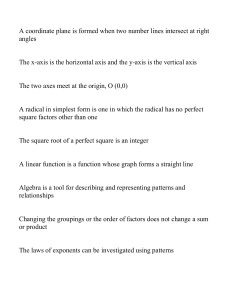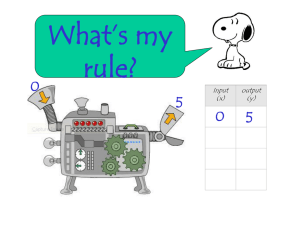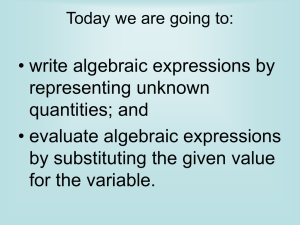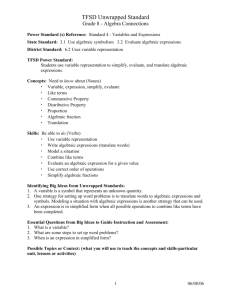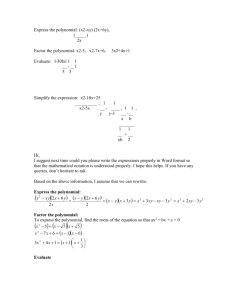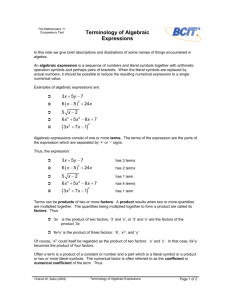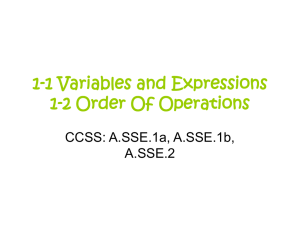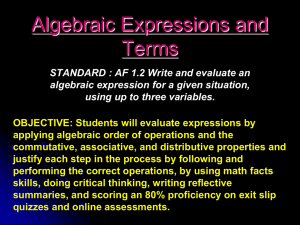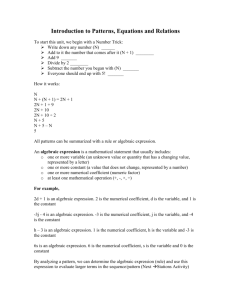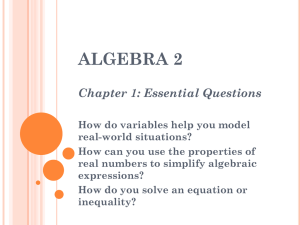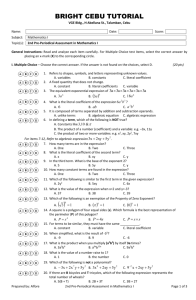Lecture Notes for Section 1.3
advertisement
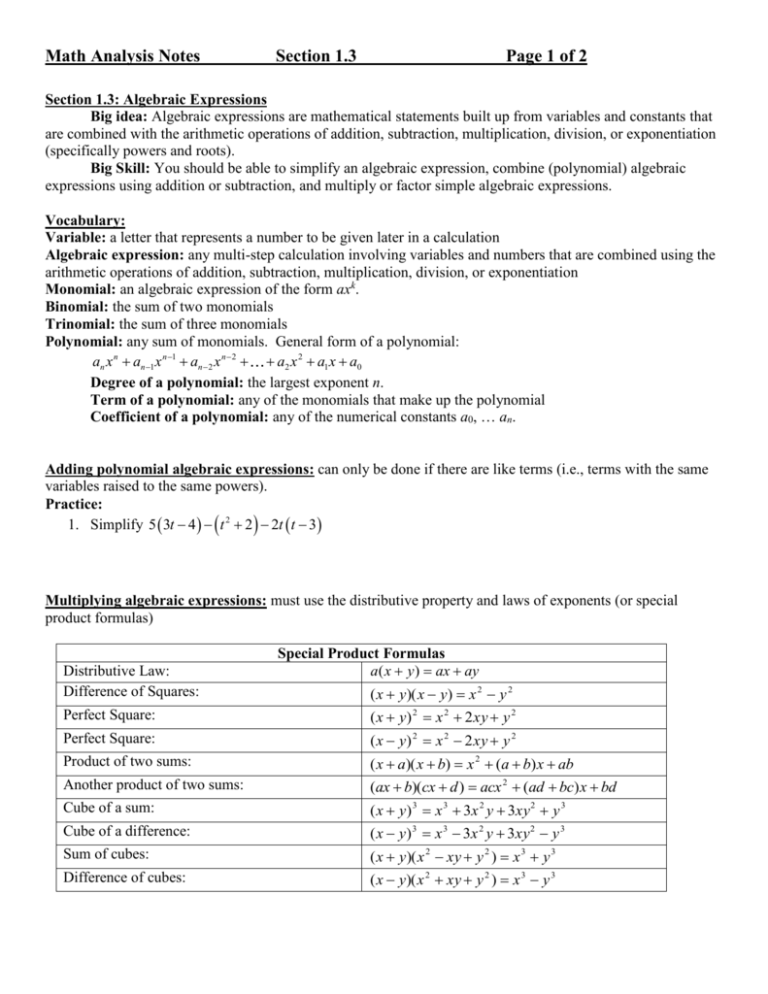
Math Analysis Notes Section 1.3 Page 1 of 2 Section 1.3: Algebraic Expressions Big idea: Algebraic expressions are mathematical statements built up from variables and constants that are combined with the arithmetic operations of addition, subtraction, multiplication, division, or exponentiation (specifically powers and roots). Big Skill: You should be able to simplify an algebraic expression, combine (polynomial) algebraic expressions using addition or subtraction, and multiply or factor simple algebraic expressions. Vocabulary: Variable: a letter that represents a number to be given later in a calculation Algebraic expression: any multi-step calculation involving variables and numbers that are combined using the arithmetic operations of addition, subtraction, multiplication, division, or exponentiation Monomial: an algebraic expression of the form axk. Binomial: the sum of two monomials Trinomial: the sum of three monomials Polynomial: any sum of monomials. General form of a polynomial: an x n an 1 x n 1 an 2 x n 2 a2 x 2 a1 x a0 Degree of a polynomial: the largest exponent n. Term of a polynomial: any of the monomials that make up the polynomial Coefficient of a polynomial: any of the numerical constants a0, … an. Adding polynomial algebraic expressions: can only be done if there are like terms (i.e., terms with the same variables raised to the same powers). Practice: 1. Simplify 5 3t 4 t 2 2 2t t 3 Multiplying algebraic expressions: must use the distributive property and laws of exponents (or special product formulas) Distributive Law: Difference of Squares: Special Product Formulas a( x y ) ax ay ( x y)( x y) x 2 y 2 Perfect Square: ( x y) 2 x 2 2 xy y 2 Perfect Square: ( x y) 2 x 2 2 xy y 2 Product of two sums: ( x a)( x b) x 2 (a b) x ab Another product of two sums: (ax b)(cx d ) acx 2 (ad bc) x bd Cube of a sum: ( x y) 3 x 3 3x 2 y 3xy 2 y 3 Cube of a difference: ( x y) 3 x 3 3x 2 y 3xy 2 y 3 Sum of cubes: ( x y)( x 2 xy y 2 ) x 3 y 3 Difference of cubes: ( x y)( x 2 xy y 2 ) x 3 y 3 Math Analysis Notes Section 1.3 Page 2 of 2 Practice: 1. 4 x 1 3x 7 2. 1 2 x x 2 3x 1 Factoring algebraic expressions: 1. Factor out common factors. 2x3 – 4x2 = 2. Look for expressions that match the product formulas. x2 – 8x + 16 = 16b2 – 36 = 3. Trick for trinomials with a leading coefficient of one: list factors of the constant term, and find which combinations add up to the coefficient of the first order term. p2 + 6p – 16 = 4. Factoring by grouping: Split a polynomial into two pieces, each of which has a common factor. This is useful for polynomials with a degree higher than 2. 3x3 + 5x2 – 6x – 10 = 5. Trick for trinomials with a non-unitary leading coefficient: first, find the product of the leading coefficient and the constant term. Then figure out what factors of that product sum up to the middle term. Split the middle term up into those two factors, then factor by grouping. 6 + 5z – 6z2 =
